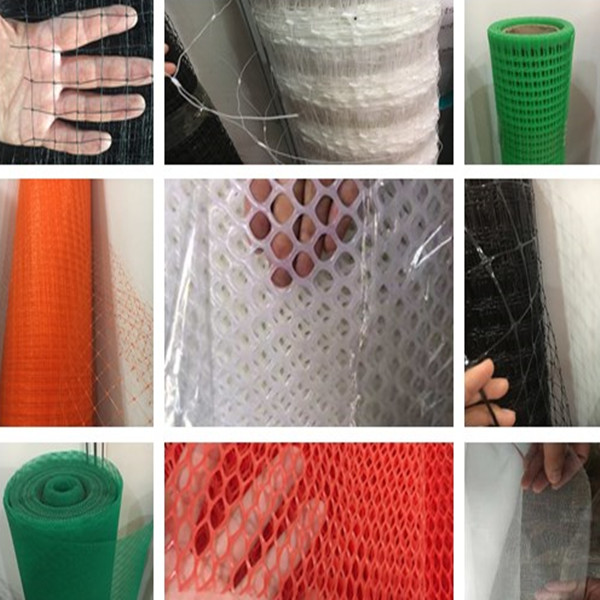Plastic Net
The plastic net including plastic flat net, plastic slope protection net, slope greening vegetation net, plastic breeding fence net, plastic plant support net, plastic anti-bird/insect nets, plastic filter net, etc.
The texture of material :PE/ PV/ PP + UV anti-acid and alkali , anti aging, corrosion resistance .
Color : transparent, white, silvery grey, green, black, etc. It's can be do as per customer's requirement.
Main uses: slope protection, greening and vegetation, crops plants supporting, anti bird and insects, breeding fence, building, internal and external wall coating lining nets, buried line warning logo, etc.
The advantages of plastic net :
solid structure
easy to set up
economic for applying
high stengthand stretching
creepage resistance, aging resistance
stable performance
impact resistance
The plastic net is ideal choice for production of new composite materials .
Plastic Net,Plastic Slope Protection Net,Anti Bird and Insect Net,Plastic Flat Net,Polyester Belt ANPING COUNTY SHANGCHEN WIREMESH PRODUCTS CO.,LTD , https://www.scwiremesh.com

When I visited the countryside, I often heard from vegetable farmers who had been growing crops for many years. Initially, their vegetables produced high yields and excellent quality. However, after several years of continuous planting, they noticed a decline in both yield and quality. Their profits dropped significantly, leaving them puzzled and concerned.
After conducting an investigation, I believe that these issues are not only related to the choice of vegetable varieties but are mainly caused by changes in soil conditions. First, the long-term use of chemical fertilizers has led to soil compaction and poor permeability. Second, improper application of fertilizers has resulted in nutrient imbalances, causing some plants to show deficiency symptoms. Third, some farmers have overused fertilizers, increasing the salt concentration in the soil. This can lead to reverse osmosis in plants, inhibiting their growth. Lastly, prolonged use of chemical fertilizers has lowered the soil's pH, increasing acidification and deteriorating the underground environment for vegetables.
These soil problems become even more severe when using plastic films in greenhouses for vegetable cultivation. According to measurements, the nitrate content in protected soil is more than five times higher than in open-field vegetable land, and the salt concentration is over four times greater.
To ensure healthy vegetable growth, it's essential to implement comprehensive measures to improve soil ecology and create better conditions for increased production.
One effective method is deep plowing to reduce salt accumulation. Soil tests show that salts tend to accumulate in the top 5 cm of soil, while less salt is found below 25 cm. Therefore, after each harvest, farmers should deepen the soil to lower the salt levels in the upper layers.
Optimizing fertilizer use is also important. Farmers should prioritize organic fertilizers, such as those made on-site, or bio-organic compound fertilizers. Balanced fertilization—reducing nitrogen and increasing phosphorus and potassium—can help maintain soil health. For fields with high nitrogen levels, planting corn during the summer can naturally reduce nitrogen content.
Farmers can also benefit from proper top-dressing, applying smaller amounts more frequently. This approach helps slow down nutrient release, reduces environmental pollution, and prevents nutrient blockage.
In addition, large-scale irrigation with water can help flush out excess salts. For long-term vegetable plots, farmers should combine drought resistance with annual leaching methods. Using the "Dashi" irrigation technique can effectively reduce soil salinity, but it must be done quickly and followed by proper plowing.
For more information, farmers can visit the new website: guoshu.aweb.com.cn, send messages, check product pricing, or contact via SMS at 01089888119. Join the fruit and vegetable forum on QQ with user Zhang Yuhong. Source: Hunan Science and Technology News.